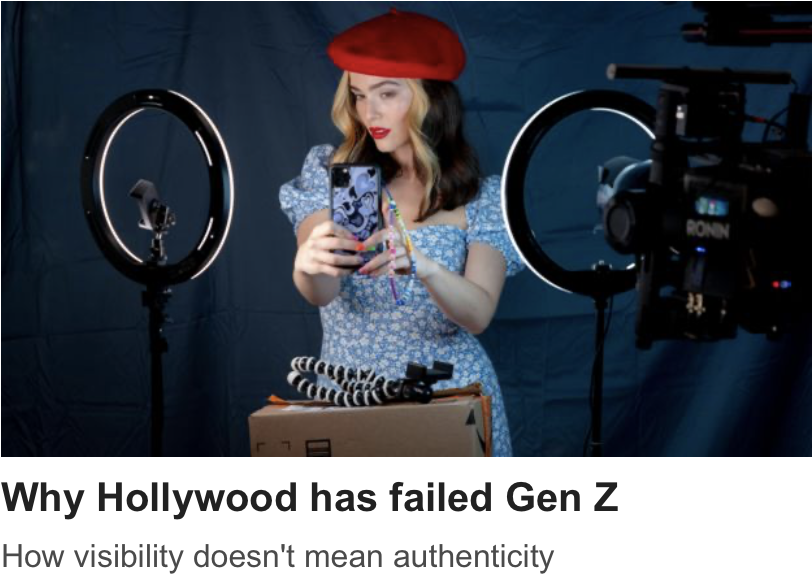Representative audience

A treatise on why Hollyweird has failed Generation Z should reveal some interesting insights. After all, why would an industry of make-believe not try to cultivate a new generation while it's still malleable? The suits at Disney, Warner Bros, and the like have a deep and long-held fondness for money; surely they'd want to maximise the size of the paying audience, rather than ignoring an emerging key demographic?
Emily Maskell's article isn't nearly that interesting though, because it doesn't even address this question. Instead, it's more concerned with how Hollyweird has got Gen Z wrong in terms of authentic representation, not revelations of strategic marketing shenanigans. It would probably make more sense if I'd actually seen any of the films or programmes she was writing about. But it at least appears to have been written for the TikTok generation's attention span, so it's quite short.
Probably the most interesting revelation is the split between older and younger generations in terms of how they consume entertainment. Older generations still mainly resort to traditional broadcast media, while younger ones rely more on streaming content.
Gen Z is welcoming the option of on-demand viewing platforms, with more than nine out of 10 US Gen-Zers subscribed to at least one service. An Ofcom report echoes this generational difference in the UK, with 59% of 55 to 64-year-olds and 76% of those aged 65+ still turning to TV channels first, while 16 to 24-year-olds' consumption of broadcast TV has fallen two-thirds in the past 10 years.
Emily Maskell, BBC Culture
And the fracturing of the market's supply through competing streaming services may be one way in which Hollyweird is disserving those who consume its content. Representation needs an audience if it's to have any relevance.
A little clarification

static.
Ironically, the confusion arising from the mobile version of the BBC's site is dispelled by the home page link when viewed on a computer.
But, like a bloody zoomer, I originally accessed it on mobile. Given that this is the audience more likely to be interested in the article, rather than old farts on their computers, you'd think that a little more care would've been taken to make the link more informative.
Hey ho. (shrug)